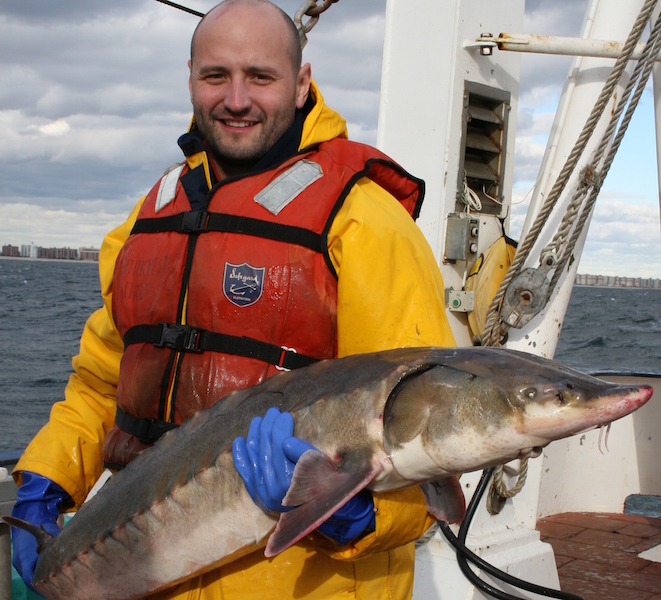
Genomic resources developed for Atlantic sturgeon
January 11, 2016
By Matt Jones
 A scientist draws on his knowledge of genomic resources for salmon and how it can benefit sturgeon.
A scientist draws on his knowledge of genomic resources for salmon and how it can benefit sturgeon.A research effort has been ongoing for the past five years, looking at developing genomic resources for sturgeon. Driving the effort is Dr. Mark Fast, an associate professor and Elanco Research Chair at the University of Prince Edward Island, Canada. Dr. Fast draws from his past working on genomic resources for salmon and says that the research effort could be a benefit to the entire sturgeon aquaculture industry.
“I had been doing a lot of work in fish health and working with genomic resources for Atlantic salmon, but it came to light that there wasn’t really anything out there in terms of transcriptome of genomic knowledge for Atlantic sturgeon,” says Dr. Fast.
Over the next few years, Dr. Fast began working alongside the owner and operator of New Brunswick’s Acadian Sturgeon & Caviar Inc, Dr. Cornel Ceapa, to develop biomarkers and other ways to help with growth and determining fish health. The pair started a research grant and collaborated with the Center for Aquaculture Technologies Canada to develop resources utilizing Dr. Ceapa’s sturgeon.
“We want to identify important markers of infection of immunological health of these animals, so we have to target tissues that are going to give us the best indication for that,” says Dr. Fast. “In fish, they don’t have lymph nodes like mammals do, so the tissues that serve the purpose of bone marrow or lymph nodes tend to be in the kidney and in the spleen. We utilized the spleen in these fish because it develops earliest in sturgeon and is easier to access than the kidney.”
From the kidneys, they moved on to the skin and the gills, as they are important barriers which infections may cross in order to enter a sturgeon. Dr. Fast says that the project is in some ways a proof of concept that this sort of effort can be done with other species of sturgeon that are more commonly utilized in aquaculture production, such as white sturgeon on the west coast of Canada or species that are important in Europe.
“Our next step, we’ve identified multiple markers that we think are important and that are very similar to immunological markers in other fish and humans,” says Dr. Fast. “We’re looking to confirm those markers using quantitative polymerase chain reaction.”
— Matt Jones





